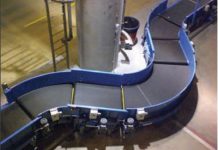
Vehya, a Detroit-based startup, is responding to the rapid shift to green power by recruiting, training, and deploying electricians who will be needed to install and maintain EV chargers across the country.
“We are committed to creating more than 100,000 new EV charging and electrical professionals in the U.S. by 2030,” says William McCoy, CEO of Vehya. “With the new investment and support from Michigan and the federal government — we can identify, train, and deploy the workforce needed to get and keep America going all-electric. The future of our planet depends on it.”
Vehya delivers targeted EV charging solutions that are designed for businesses, governments entities, and homeowners. The company hopes to make choosing, installing, and maintaining EV chargers simple and cost-effective.
With more than 130 million homes and 30 million plus businesses, there are fewer than 1 million licensed electricians employed in the U.S., according to the U.S. Bureau of Labor Statistics. The U.S. American Jobs Plan and recent National Apprenticeship and Relaunching America’s Workforce Acts are aimed at building infrastructure the U.S. needs, including providing $100 billion to develop workforce development programs geared to the carbon-neutral future that will power the U.S. economy.
“Installation and service of EV chargers is what we do. Right now, in the U.S., we do not have enough electricians to meet the future demand for EVs,” says McCoy. “At Vehya we are using technology focused on preventing the all-electric future from coming to a grinding halt because of workforce logistics.”
Vehya’s platform combined with its workforce development program trains electricians in EV charging installation and service, improving proficiencies in key areas needed for the future the industry. The company’s online platform also helps EV professionals connect with job opportunities, helping reduce the time it takes consumers to find an EV installer from months to days.
DeLonte — a Detroit native whose last name was not disclosed — learned of the training opportunity and career path when McCoy pitched it to him at Starbucks where he worked. DeLonte took him up on the offer and continues the program today.
As part of the program, he is partnered with a licensed electrician and gaining hands-on career experience. Vehya identifies EV workforce development program participants through its partnership with adult education programs and public-school systems.
“It was an exciting opportunity to me because I was interested in becoming an electrical apprentice. When (McCoy) offered to connect me with an electrician, I knew it was meant to be,” says DeLonte. “Today, I am working with an experienced electrician and learning as much as I can about what a career as an electrician can offer me in the future.”
McCoy concludes, “As we head into the future where almost everything will depend on renewable electricity, young people like DeLonte and companies like Vehya must work together to build and support the infrastructure we need for an equitable carbon-neutral future.”











